Medically review by Kim Langdon
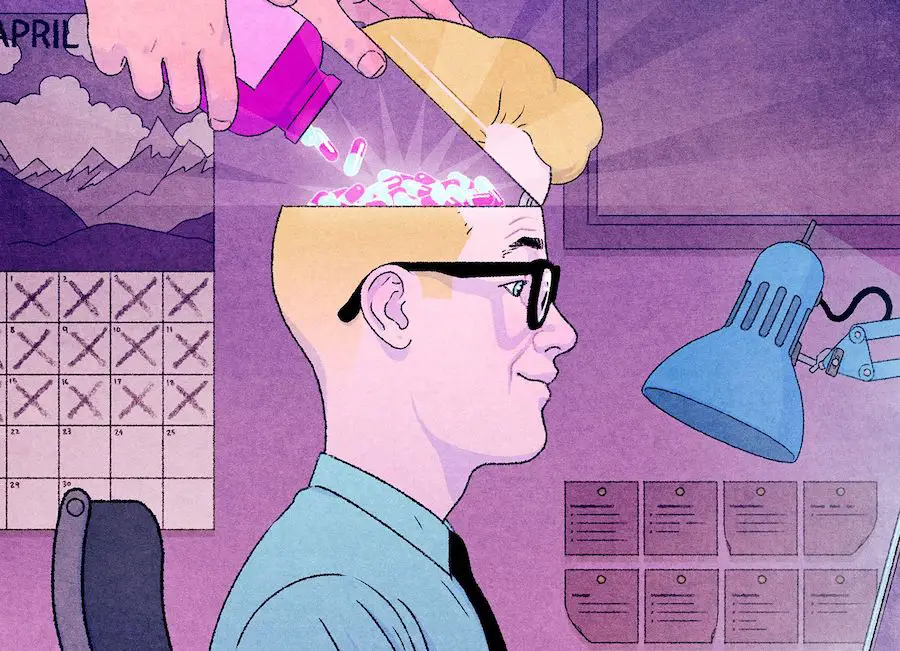
Let's begin with your own personal crash course to nootropics. Perhaps, you're asking, "What the heck is a nootropic?"
The term was coined by a psychologist from Romania, and the word is derived from the Greek words "mind" and "bend."
So, let's bend your brain a bit.
Nootropics are simply a drug or supplement used to enhance cognitive performance. Often, they're referred to as "smart drugs."
Think of them like steroids for the mind, except far less invasive.
Trust us - we are not encouraging drug use amongst our readers!
If you're having trouble thinking about what we might mean, just think of caffeine, a commonly used (and maybe even abused) stimulant. Technically, coffee is a nootropic.
If you venture into the world of nootropics, you'll find both natural and synthetic options to fuel your fire, but today, we're going to focus on safe and natural supplementation.
One of the major selling points around nootropics is that they offer supplementation without side effects, so you can experiment safely and without concern for the most part.
It's also important to note that some popular nootropics require a prescription, those of which we won't be covering today.
Brainy benefits of nootropics
- Focus
- Recall and memorization
- Prevention of cognitive decline
- Mood enhancement
- Memory
- Decision-making skills
... and a whole lot more!
Think about your brain as you age, or think about these cognitive functions when you're running low on sleep.
You start to slow down a little, right?
Nootropics are thought to present a natural way to bypass that (although we don't recommend going without proper sleep).
It's like taking your cognition from 'average civilian' to 'superhuman.'
Racetams
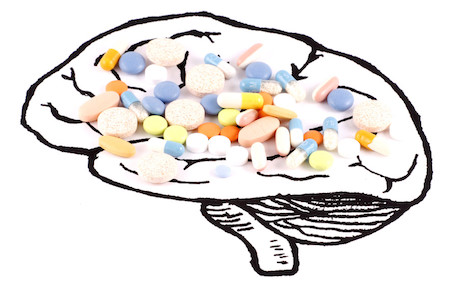
Piracetam was the first nootropic, so it's worth mentioning this specific subset of supplements here.
A chemist from Romania unearthed this discovery in 1963, so it's been around for a while.
They've been studied heavily, and there is a slew of research out there with promising results in everyone from the aging population to people with dementia.
It's not often marketed as a general 'racetam' supplement if you're shopping, so look at ingredients.
You can purchase phenylpiracetam here. Here are a few interesting facts about racetams, to give you a better idea of this nootropic's abilities:
- There are a few different types of racetams, most notably piracetam, oxiracetam and aniracetam.
- This study shows the latter two have a stimulant effect on some brain pathways which show why they might be popular amongst college students studying for exams or looking for a little buzz.
- Despite racetams not exactly being a 'natural' supplement, they are relatively safe and reliable, and they're well tolerated by most individuals.
- Piracetam is good at protecting the brain, can be useful during recovery from traumatic cognitive disorders, and can even be used to treat anxiety and depression.
- Aniracetam and oxiracetam have been studied in rats, and it improves object recognition impaired by age.
Creatine
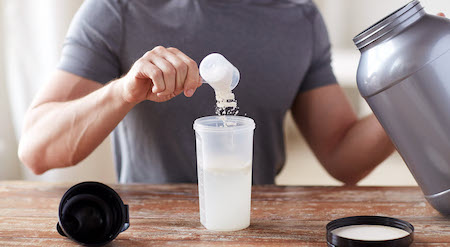
If you've ever self-identified as a gym rat, you might be familiar with creatine.
If not, you might think it serves no purpose to you unless you're pumping iron. Beyond your daily workout, creatine has some pretty awesome benefits.
It is a safe drug to use with few side effects, and beyond the brain, it can also increase bone density, improve athletic performance, and - of course - lead to strength and muscle gains.
- This study examined the effects of creatine on sleep-deprived individuals. Balance, mood and reaction time were improved with a daily dose of 20 grams of the nootropic supplement over the course of one week.
- Creatine is a fantastic supplement for the elderly. This study compares the aging brain to a sleep-deprived brain, confirming that there are neurological benefits including resistance to fatigue and increasing brain creatine levels, which can lead to improved neuropsychological performance.
- While there is a lack of definitive research, there is reason to believe that creatine could potentially ward off cognitive decline which could be good news for those who want to take preventative measures against degenerative diseases such as dementia or Parkinson's disease.
- This study proves that it can be an especially helpful supplement for cognition in individuals who follow a vegetarian diet, or someone who has trouble consuming enough protein - specifically protein from animal products.
- Creatine actually allows the brain to produce more energy. Unlike coffee which provides a stimulant effect, creatine is more self-sufficient (and less jittery!). Moreover, there is evidence that oxygen flow to the brain is more easily utilized while supplementing with creatine which can improve a wide array of cognitive processes.
Creatine is highly bioavailable so the body takes to it quite well and absorbs it easily.
It has few side effects, but a common downside is water weight which can be counteracted with proper hydration and diet.
L-theanine
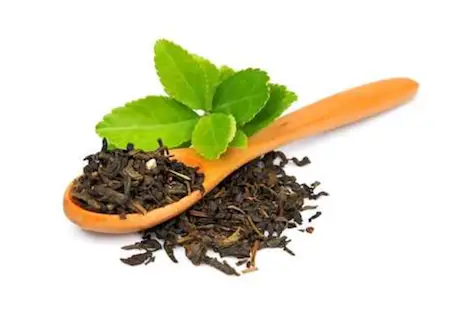
L-theanine is an amino acid, and fantastic adaptogen, and it helps to reduce the impact of stress on the mind and body.
Moreover, it's one of our top recommended natural sleep supplements.
It's no surprise that this multi-faceted herb also has some brain-boosting properties. It's found in green tea, so you may already be a fan of this nootropic, even if you don't know it.
- Caffeine and L-theanine make a dynamic duo; this study shows that a combination of the two increases accuracy in attention-switching tasks, and less chance of getting distracted during memory tasks. A cup of green tea could be advantageous before a mentally demanding event such as an exam.
- In yet another study done on combining caffeine and L-theanine, it increased "simple reaction time, faster numeric working memory reaction time and improved sentence verification accuracy."
- Research done on mice shows that L-theanine supplementation can improve chronic restraint stress conditions which is a driver for symptoms of anxiety and depression. L-theanine decreases the amount of cognitive and oxidative damage this type of stress imparts. L-theanine can be powerful for mood enhancement in addition to its adaptogenic properties which increase resilience to stress.
Moreover, it's thought that using L-theanine with caffeine can reduce the undesirable effects of caffeine.
Many of the studies done on this nootropic use green tea which naturally combines the two, so it can be a fantastic alternative if you're trying to kick your coffee habit with a few added bonuses.
Ashwagandha
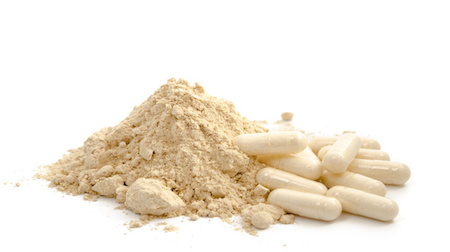
If anxiety is a major component of why you’re seeking better brainpower, this adaptogen could help calm your nerves and cut down your worry time… big time!
We have a whole article on ashwagandha and how to use it.
It's anti-inflammatory properties promote good protection against degenerative disease, and it has a GABA mimetic effect which promotes the formation of dendrites - an extension of a nerve cell.
Considering its abilities and its known impact on reducing stress and increasing our ability to handle stress, ashwagandha is an amazing nootropic.
It's also very safe to use, and it has been used in Ayurvedic medicine for centuries.
Huperzine A

This Chinese plant is purified, and sometimes it’s also known as ‘club moss.’
It’s most notable benefits include its positive improvements in individuals with Alzheimer’s disease as proven by this study and more.
In addition to improved memory, cognitive and behavioral function was improved.
This is due to its uncanny ability to increase acetylcholine levels which is linked to improved retention of information and formation of memories.
It also supports the mitochondria of brain cells which are the primary source of energy for the cells in our brain.
5-HTP
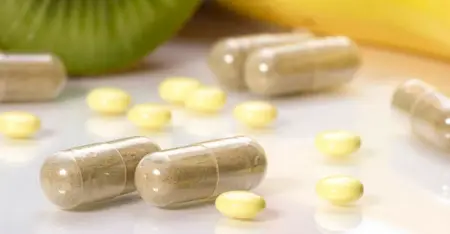
This supplement isn’t generally thought of as a nootropic, but it’s important in the production of serotonin and melatonin which can make a huge impact in mood and sleep.
While most nootropics are linked directly to improved memory or cognition overall, we believe that getting to the root of the problem can often be the most effective treatment!
5-HTP is a good ‘entry-level’ to nootropics.
Think about it this way: if you feel happy and upbeat, and you’re getting a proper amount of quality sleep at night, you’re much more likely to be focused and alert during the day which improves everything from test scores to memory – both long-term and short-term.
It’s relatively harmless unless you are taking SSRIs (antidepressants), as it also interacts with serotonin levels in the brain.
Docosahexaenoic acid
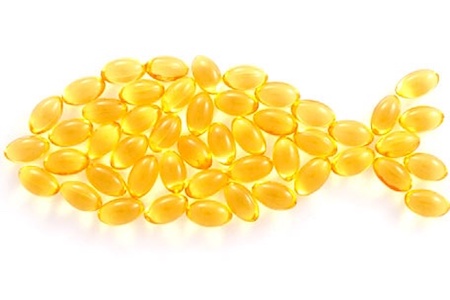
Docosahexaenoic acid or DHA is a great way to pack in some omega-3 fatty acids, which is where the magic lies in this nootropic. Omega-3 balance is vital to the brain, and fish is one of the healthiest foods in keeping your mind young and sharp.
The main factor in DHA's prevalence is its link to degenerative disease.
DHA is a part of our brain's neuronal membranes, and it's actually a pretty substantial part of our brain's total mass. Naturally, it makes sense that supplementing with it would be beneficial to the brain.
Purchase a DHA/EPA supplement here.
- The famous Framingham Heart Study concluded that higher DHA levels were associated with 47% reduction for risk of dementia. Moreover, low levels of DHA and low fish intake in the diet were linked to dementia.
- In general, omega-3 polyunsaturated fatty acid intake is associated with nervous system activity, improved cognitive development, memory formation neuroplasticity in the membranes and complex cortical processing, as shown in this study.
- While we truly believe in real food as the best supplement, even adults who don't get much omega-3 action in their food can experience memory benefits from a DHA supplement according to this research.
Bacopa Monnieri

If you find your memory slipping, this may very well be the nootropic for you.
This herb is well known in Ayurvedic medicine much like ashwagandha, and it’s very well tested and studied so you can use it with confidence.
According to this study, it has great potential for reducing the risk of cognitive disorders and reducing oxidative damage which are two fantastic signs when determining whether something is going to fuel our brains properly.
Then, we can safely assume cognitive enhancement while using the supplement. It promotes calmness and reduces anxiety, and it can bring on some serious tranquility if you're stressed out.
It's a great addition to your 'stack,' which we'll talk more about below. Some nootropics work well on their own, while others like Bacopa Monnieri work well in conjunction with others.
This stack also includes vitamin B12 and a few other brain boosters.
A guide to beginning with nootropics
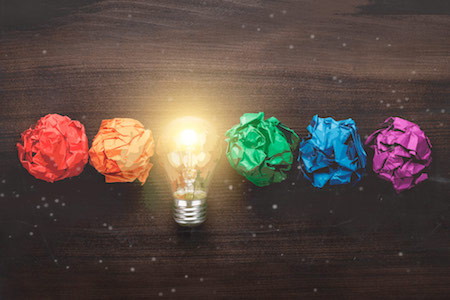
If you are measuring powders, and you are not purchasing pre-measured supplements or stacks of nootropics, it is imperative that you use a scale to accurately weigh out portions so as to avoid accidentally ingesting too much of a supplement.
While nootropics are known to have little to no side effects, it is possible to have too much of a good thing!
You should always do research on the nootropics you choose to supplement with, proper dosages, medication interactions, and potentially lethal doses.
Seek quality above all. Nootropics and any supplements including basic vitamins and minerals are NOT created equal.
You want a pure product that is bioavailable and easily absorbed by your body. Find a reputable company that you would like to purchase from, or follow our product recommendations in this blog post.
To my knowledge, they are reputable sources for nootropics.
This blog post does contain affiliate links, but Happy Body Formula is in no way connected to these companies; we simply want to offer you resources if you are interested in nootropics, and we may receive a small portion of the purchase price.
Nootropics are not a cure for anything. We highly recommend using nootropics to supplement an otherwise healthy lifestyle.
If you’re having trouble figuring out how to properly fuel your body with real food, consider our 9-week Happy Body Formula program which outlines 8 weeks of meals for you.
If you’re having trouble getting in the most important nutrient – good rest – consider joining our 7-Day Sleep Better Challenge which includes a free eBook among other resources.
Nootropic stacking is highly individual. You're going to have to assess your needs (i.e. how much brainpower you need or whether or not you want to address anxiety), research the supplements you would feel comfortable using as many nootropics are relatively new supplements, and dose out the correct serving sizes based on your supplementation level, goals and overall safety.
While we've provided plenty of information here in terms of what nootropics serve what purpose(s), you'll want to delve deeper into the world of nootropics before beginning your custom regimen.
The skinny on stacking
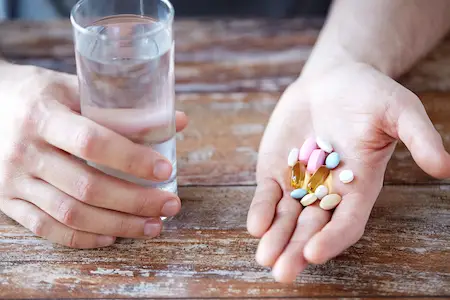
The power in nootropics sometimes lies in numbers. Supplementation can require both quantity and quality, and this is where the stacking comes in.
If you do any of your own research, you'll find examples of nootropic stacks and plenty of pre-stacked nootropic supplements to choose from.
Essentially, this means the supplements are working together for a bigger effect a.k.a. your optimal brain functioning.
Generally, you'll start with a bigger supplement like a racetam, and you'll tack on some accessory pieces often including a multivitamin.
Whether you choose to seek out the stack for you or build your own is up to you, but here are a few examples:
- Caffeine and L-theanine. Just try green tea!
- 5-HTP, valerian root and melatonin. Nootropics are good for sleep, too.
- Piracetam, alpha GPC, fish oil (or DHA) and a multivitamin. Start big and get down to the basics.
Do you have any experience with nootropics? We want to know! Share with us below, and spread the word about these brainy boosters by sharing this post. We hope you learned something new today!
This article was fact checked for accuracy by Dr. Kim Langdon, MD. As always, this is not personal medical advice and we recommend that you talk with your doctor.
Share on Pinterest
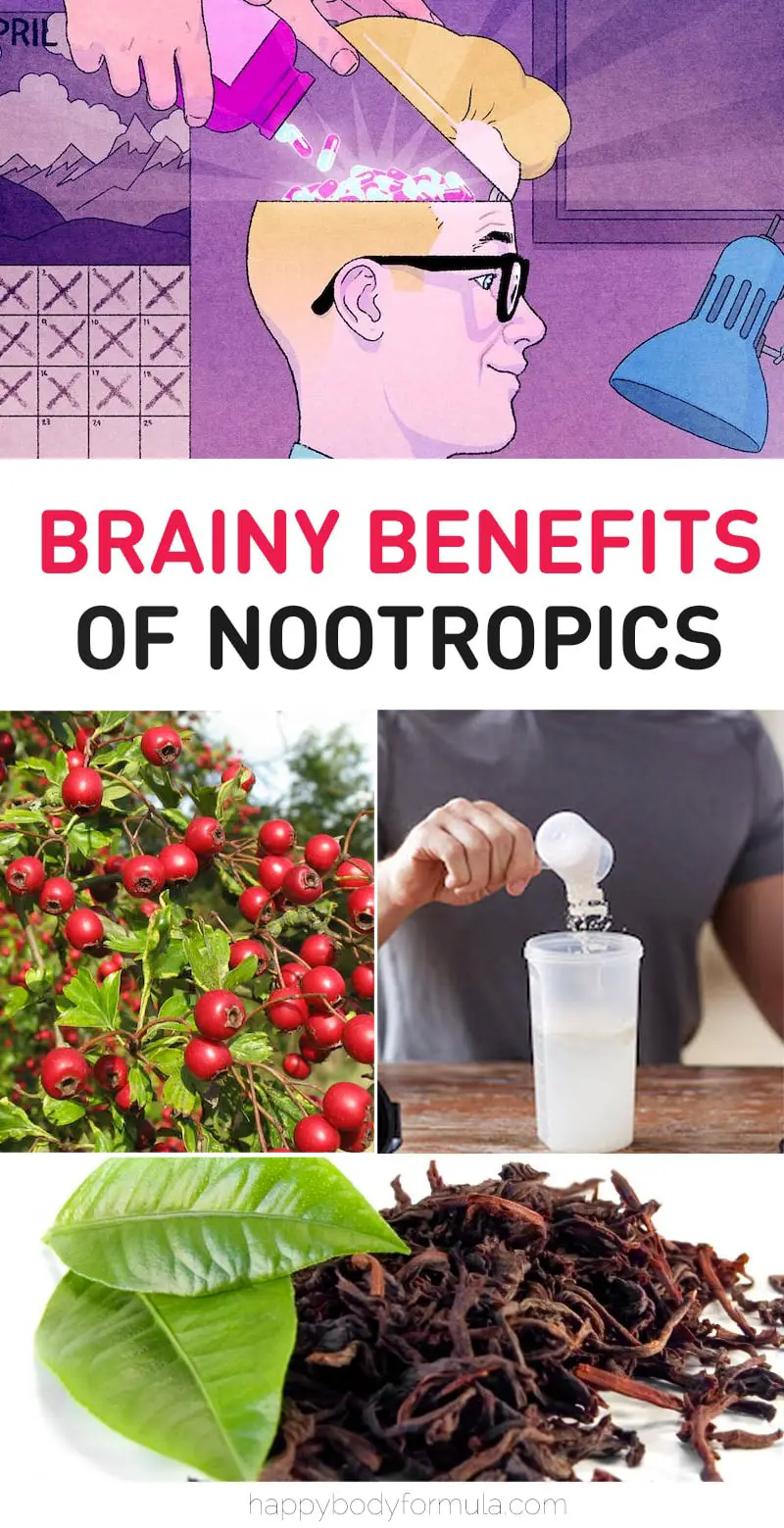
1. Kumar V., Khanna V. K., Seth P. K., Singh P. N., Bhattacharya S. K. Brain neurotransmitter receptor binding and nootropic studies on Indian Hypericum perforatum Linn. Phytotherapy Research.
2. Melkonyan K. P.1.c.002 influence of nootropil on neuroplasticity of the brain cortex in conditions of hypokinesia. European Neuropsychopharmacology. 2006;16:S224–S225. doi: 10.1016/s0924-977x(06)70170-5.
3. U?as J., Brunner L. C., Geddes J. W., Choe W., Cotman C. W. N-methyl-d-aspartate receptor complex in the hippocampus of elderly, normal individuals and those with Alzheimer's disease. Neuroscience.
Kimberly Langdon M.D. is a retired University-trained obstetrician/gynecologist with 19-years of clinical experience. She delivered over 2000 babies to mothers in a suburban Midwestern community.


Its hard to find knowledgeable people on this topic, but you sound like you know what youre talking about! Thanks